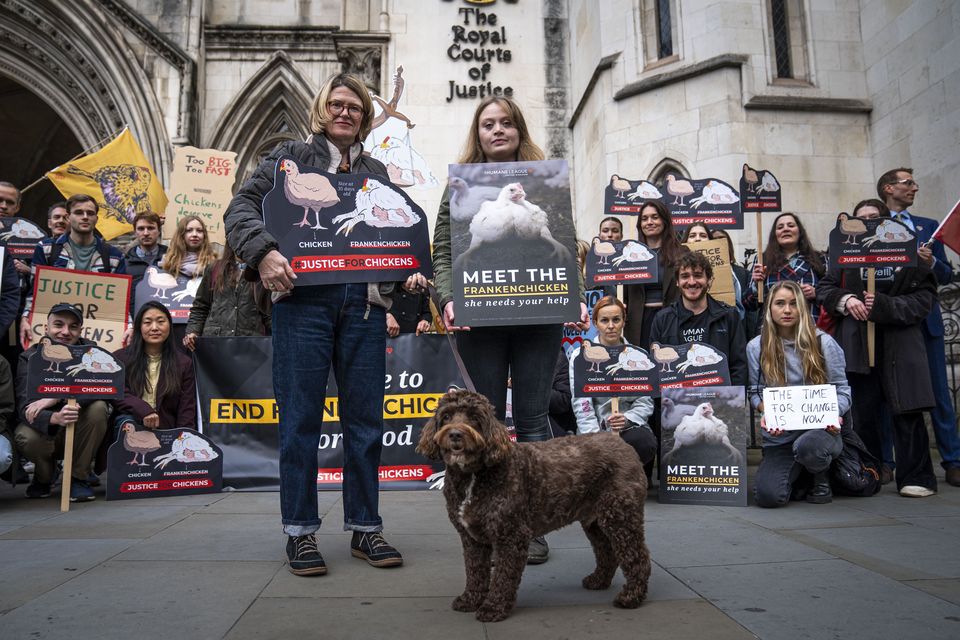Rules around keeping farm animals “unequivocally” prioritise health and welfare over profit, a Court of Appeal judge has said in a case over so-called “Frankenchickens”.
Animal welfare charity The Humane League UK previously brought legal action against then Secretary of State for Environment, Food and Rural Affairs Therese Coffey, arguing she had misinterpreted a key section of animal welfare law concerning the chickens which can reach a slaughter weight of more than 2.0kg in five to six weeks.
Last year, the High Court was told that the fast-growing breeds are said to experience significantly worse welfare detriment than slower-growing breeds, risking leg deformities, organ failure and chronic pain.
The legal challenge was dismissed at the High Court after a judge found Ms Coffey had not “positively authorised or approved unlawful conduct by others”.
The Humane League UK brought an appeal to the Court of Appeal in October, but it was also dismissed in a ruling on Friday.
In a 21-page judgment, Lord Justice Males said there was contested evidence on fast-growing breeds and so the court cannot determine whether keeping them is unlawful.
Lord Justice Males, sitting with Lord Justice Underhill and Lord Justice Snowden, said the charity had accepted “this court cannot resolve the contested scientific issues”.
However, the appeal judge said that according to regulations covering farmed animals, farmers should not try to balance higher productivity against negative impacts on the animals’ wellbeing.
Animal welfare supporters outside the Royal Courts Of Justice in London (Ben Whitley/PA)
He said: “If a given breed can reasonably be expected to suffer a detrimental effect on its health or welfare because of its genetic make-up, the prohibition on keeping that breed of animal applies regardless of any commercial advantages which it may have.”
Lord Justice Males added that the regulation “unequivocally prioritises animal health and welfare over commercial benefit”.
He added: “But it does not prohibit selective breeding which can be undertaken to promote productivity with no detriment to an animal’s health or welfare.”
The Department for Environment, Food and Rural Affairs (Defra), which had defended the legal challenge, said it does not have to set laws on keeping particular breeds and that responsibility lies instead with farmers.
Defra also told the court in London that it does not accept there is a scientific consensus that fast-growing chicken breeds cannot be kept without an impact on their welfare.
Following the ruling, Sean Gifford, managing director of The Humane League UK, said: “This historic ruling exposes the government’s failure to address the biggest animal welfare crisis of our time.
“Over one billion thinking, feeling chickens are leading lives of misery because of their fast-growing genes, and the court has ruled that this type of suffering should be prohibited by law.”
